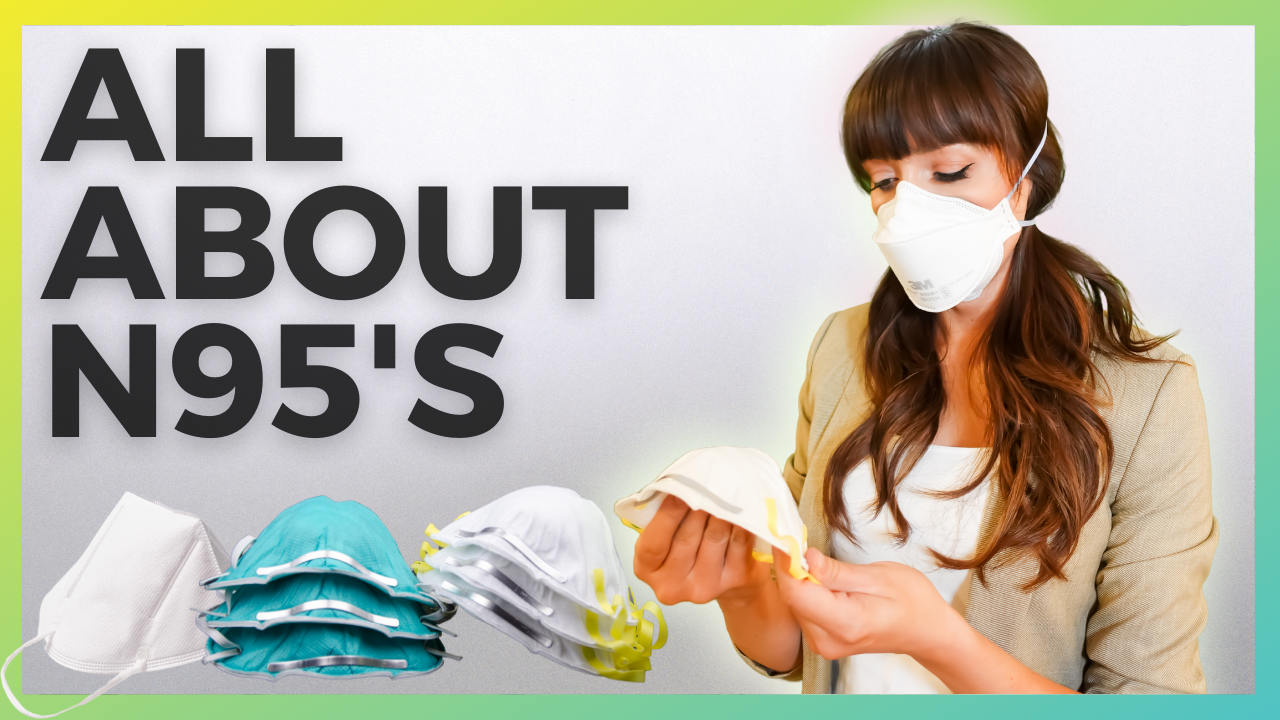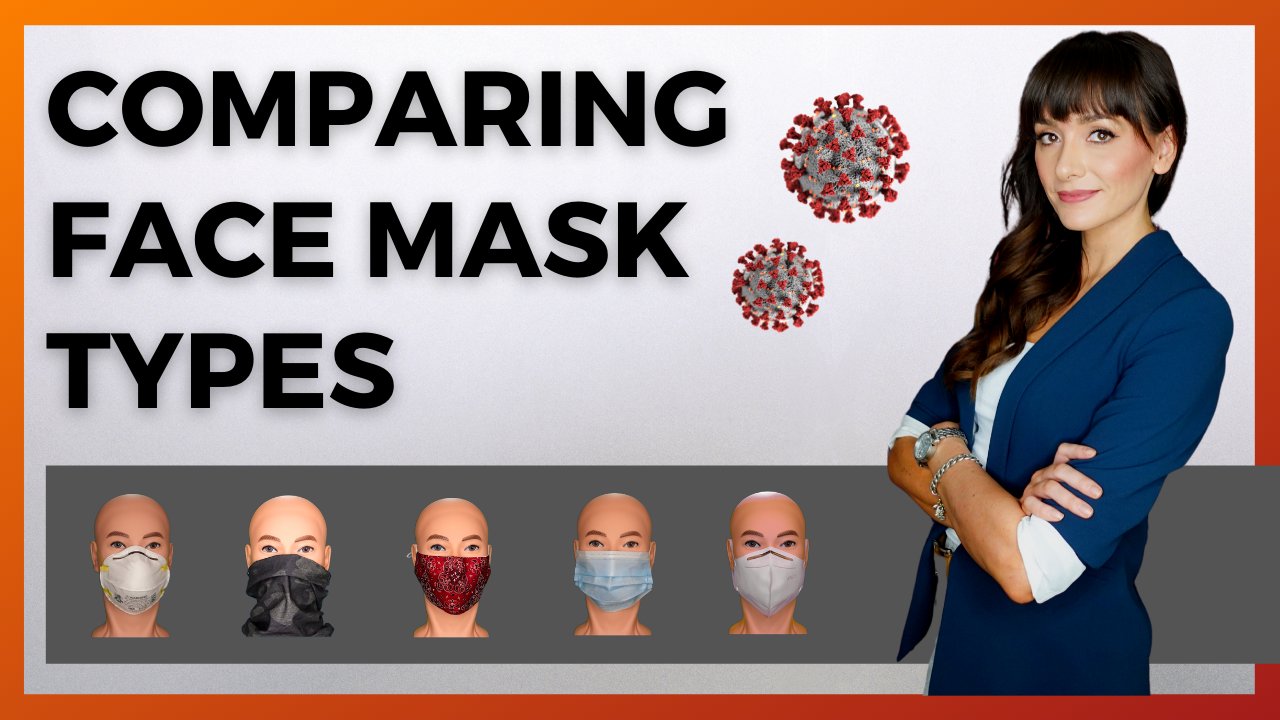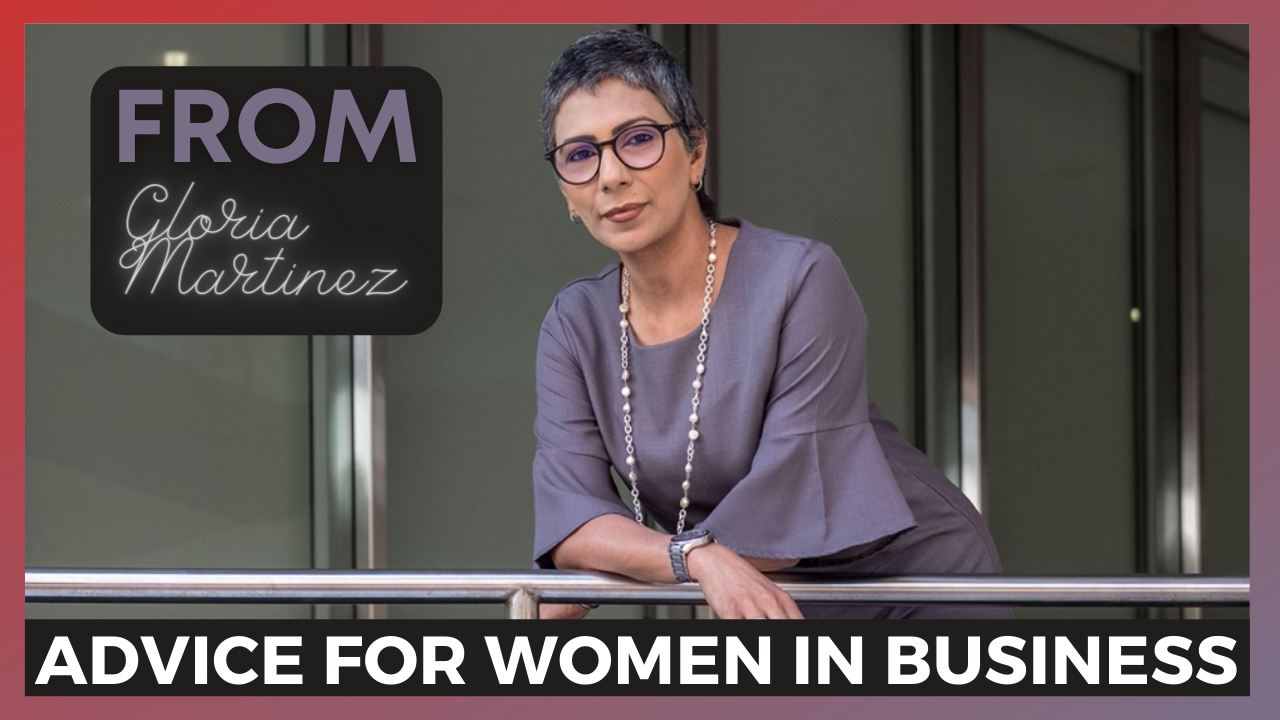N95 are the most protective option for face coverings, but to make the right choice you need to know a few basics about what they protect against, how to select the right type and identifying counterfeits.
In this article, I'm going to be answering some of the most asked questions about N95s so that you can make the best choice for yourself when it comes to covid-19 protection.
What does N95 mean?
To start with N95s are actually considered respirators.
The N in N95 means it's not resistant to oil.
The 95 means it filters out at least 95% of airborne particulate and aerosols.

Who approves N95's?
As respirators, N95s are approved by the National Institute of Occupational Safety and Health or NIOSH, which is a branch of the CDC.
Those that are used in medical environments are also cleared by the FDA to be substantially resistant to blood and other bodily fluids. These are known as surgical respirators more commonly than N95's.
In addition, manufacturers may choose to make them to meet ASTM consensus standards, however, this isn't required.
A good website will make it clear where they source their masks and the approvals for each.

Are industrial N95's different than those used in healthcare?
Yes, although the filtration is the same for both, N95s used in healthcare will have a higher level of liquid splash resistance and the corresponding FDA approval.
Are there different types of N95's?

When most people think of N95s, they think of this style, but there are actually quite a few different types.
To help compare and contrast the features you typically see we're going to go over these four.
There are many different N95 vendors, but I like this one. Use code ALLY10 for 10% off your order.

3M 8210 N95

It's kind of the classic N95 and has made in the US.
It's got a molded cup shape and is best for personal or industrial use since it's approved by NIOSH, but not the FDA for resistance to fluids.
3M Aura

This is the 3M AURA, it comes in two models:
- 1870 is best for use in healthcare
- 9205 is best for use outside of healthcare
They're both made in the US and approved by NIOSH.
The 1870 is also approved by the FDA for use in healthcare and has the highest bacterial filtration efficiency according to ASTM standards.
These styles are made with flexible cloth, they seal comfortably, fold flat and have a foam panel that reduces glasses fog.
In my opinion, they provide the overall most comfortable fit.
PHG N95 and BYD N95

These next two actually look more like KN95s than N95s, but they are in fact, NIOSH approved N95s.
This is the PHG 95, it's certified by NIOSH and is made in the US. It has four layers and a dense foam nose cushion, which helps with comfort and reducing glasses fog.
Lastly, we have the BYD N95, it's the only mask on this list that isn't made in the US, but it is certified by NIOSH as an N95. It's a four layer mask and is glue free. Although it's not approved by the FDA for healthcare use it is CE certified and meets EEA standards for use in hospitals in the European Inion.
These two also tend to be inexpensive when compared with 3M N95s because they run about $4 each.

There are a few easy ways to tell if an N95 is authentic:
1. Use the 3M Safe Guard Program
If it's a 3M N95, they often have a marking on the package that says 3M Safe Guard. This is a program 3M has to validate most of their N95s.

To check authenticity, you need to find where the codes are stamped on the box. For this model they're on the bottom of the box. Enter the digits on the Safe Guard page. The top number is usually the secure code and the next one is usually the lot, check the validation and you're done. There's also resources to the right to help you to validate any 3Ms that aren't part of the system.
2. Check the NIOSH Registry
Next, you can check the NIOSH registry, simply take the TC code that's on the N95 and check it on the NIOSH approved N95 page.

3. Check the FDA Approval
Lastly, if you want to check the FDA approval, you can check using the FDA registration and the device listing. Just be aware, at the top of the listing, it refers to N95's as surgical respirators. This is what N95's are called when they are used in a medical environment.
Does buying masks take them away from healthcare workers?
It's critical that we consider our healthcare workers first and foremost.
Although many N95 stocks have been replenished, still try to purchase N95s responsibly and from vendors that ensure they're able to meet the needs of their healthcare clients first and foremost.
If you are purchasing N95s and are not in healthcare, you may want to consider buying those without the FDA approval to conserve them for healthcare workers. They're still going to have the same 95% filtration rate, but just not the splash resistance.
Also, don't forget that by protecting yourself and others, you are keeping people out of the hospitals, which in turn helps to protect healthcare workers.
.........
I hope this article helps to answer your questions about N95s.
If there were some I missed feel free to ask them in the comments below.
Stay safe and healthy!




Leave a comment
All comments are moderated before being published.
This site is protected by hCaptcha and the hCaptcha Privacy Policy and Terms of Service apply.